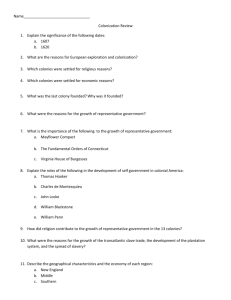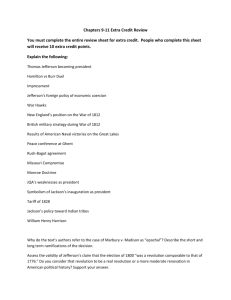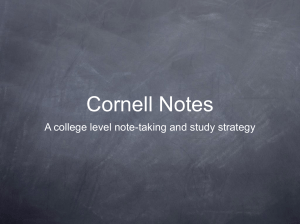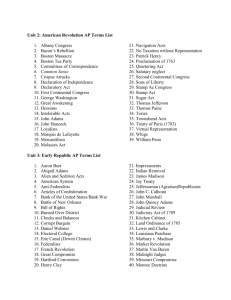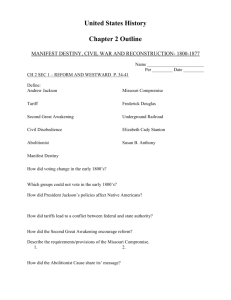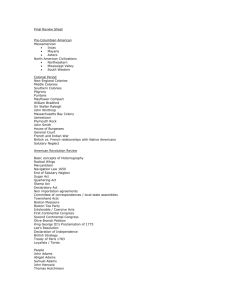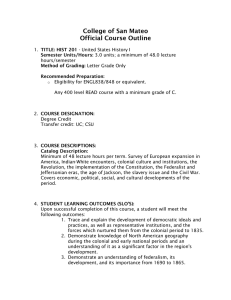Social Studies Fair Who: Middle School 8th Grade Social Studies
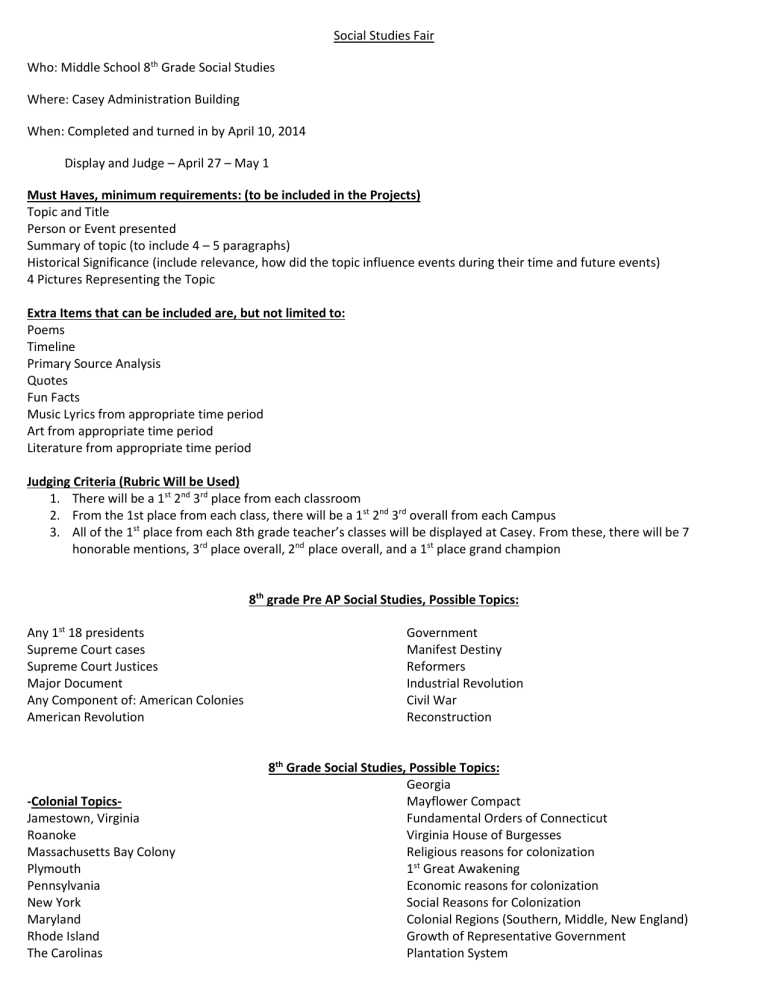
Social Studies Fair
Who: Middle School 8 th Grade Social Studies
Where: Casey Administration Building
When: Completed and turned in by April 10, 2014
Display and Judge – April 27 – May 1
Must Haves, minimum requirements: (to be included in the Projects)
Topic and Title
Person or Event presented
Summary of topic (to include 4 – 5 paragraphs)
Historical Significance (include relevance, how did the topic influence events during their time and future events)
4 Pictures Representing the Topic
Extra Items that can be included are, but not limited to:
Poems
Timeline
Primary Source Analysis
Quotes
Fun Facts
Music Lyrics from appropriate time period
Art from appropriate time period
Literature from appropriate time period
Judging Criteria (Rubric Will be Used)
1.
There will be a 1 st 2 nd 3 rd place from each classroom
2.
From the 1st place from each class, there will be a 1 st 2 nd 3 rd overall from each Campus
3.
All of the 1 st place from each 8th grade teacher’s classes will be displayed at Casey. From these, there will be 7 honorable mentions, 3 rd place overall, 2 nd place overall, and a 1 st place grand champion
8 th grade Pre AP Social Studies, Possible Topics:
Any 1 st 18 presidents
Supreme Court cases
Supreme Court Justices
Major Document
Government
Manifest Destiny
Reformers
Industrial Revolution
Any Component of: American Colonies
American Revolution
Civil War
Reconstruction
-Colonial Topics-
Jamestown, Virginia
Roanoke
Massachusetts Bay Colony
Plymouth
Pennsylvania
New York
Maryland
Rhode Island
The Carolinas
8 th Grade Social Studies, Possible Topics:
Georgia
Mayflower Compact
Fundamental Orders of Connecticut
Virginia House of Burgesses
Religious reasons for colonization
1 st Great Awakening
Economic reasons for colonization
Social Reasons for Colonization
Colonial Regions (Southern, Middle, New England)
Growth of Representative Government
Plantation System
Transatlantic slave Trade
French and Indian War
Proclamation of 1763
Treaty of Paris 1763
-American Revolution Topics-
Taxes that led to the Revolution
Quartering Act
“Taxation without Representation” (Patrick Henry)
Boston Massacre
Boston Tea Party
Declaration of Independence (Grievances, unalienable rights)
Lexington and Concord
1 st or 2 nd Continental Congress
Bunker Hill
Saratoga
Valley Forge
Bonhomme Richard vs. Serapis
Yorktown
Treaty of Paris 1783
Abigail Adams
John Adams
Wentworth Cheswell
Samuel Adams
Mercy Otis Warren
James Armistead
Benjamin Franklin
Bernardo De Galvez
Crispux Attucks
King George III
Haym Solomon
Patrick Henry
Thomas Jefferson
Marquis De Lafayette
John Paul Jones
Thomas Paine
George Washington
Articles of Confederation
Shays Rebellion
Northwest Ordinance
Land Ordinance Act
-Government Topics-
Constitution
Bill of Rights
Legislative Branch
Executive Branch
Judicial Branch
Magna Carta
English Bill of Rights
Federalist Papers
Anti-Federalist Papers
The Great compromise
3/5 Compromise
Proposing and Ratifying and Amendment
13 th Amendment
14 th Amendment
15 th Amendment
7 Principles of Government
-Early Republic Topics - 1 st 6 presidents and their policies-
George Washington
Neutrality Proclamation
Farewell Address
Alexander Hamilton
National Bank
Federalists
Democratic Republicans
Whiskey Rebellion
Federal Judiciary Act of 1879
John Jay
John Adams
XYZ Affair
Alien Acts
Sedition Acts
Virginia Kentucky Resolutions
Thomas Jefferson
Lewis and Clark
Louisiana Purchase
Zebulon Pike
Marbury VS. Madison
Democratic Republicans
James Madison
War of 1812 (various topics from the war)
James Monroe
Compromise of 1820
Gobbons VS. Ogden
Monroe Doctrine
McCulloch VS. Maryland
Era of Good Feeling
Convention of 1818
John Q Adams
Corrupt Bargain
Election of 1824
Election of 1828
-Jacksonian Era Topics-
Andrew Jackson
Democrat Political Party
Nullification Crisis
2 nd Bank of the United States
Indian Removal Act
Trail of Tears (during Van Buren’s Presidency)
Worcester VS. Georgia
Compromise Tariff
Henry Clay
Daniel Webster
John C. Calhoun
Martin Van Buren
William Henry Harrison
Whig Political Party
John Tyler
Pre-Emptive Act
James K. Polk
54⁰, 40⁰ or fight
Oregon Territory
Annexation of Texas
Oregon Trail
California Gold Rush
Utah
The Great Mormon Migration
Gadsden Purchase
Mexican American War
Treaty of Guadalupe Hidalgo
Zachary Taylor
Winfield Scott
John C. Fremont
American Progress by John Gast
-Industrial Revolution Topics-
Cotton Gin and the rise of slavery
Factory System
Urbanization
Industrialization
Free Enterprise System
Interchangeable Parts
Steamboat
Telegraph
Railroad
Transcontinental Railroad
Erie Canal
The Jungle Written by Upton Sinclair
-Reform Movement Topics-
Second Great Awakening
Horace Mann
Education Reform
Women Rights
Elizabeth Cady Stanton
Susan B. Anthony
Sojourner Truth
Temperance Movement
Lyman Beecher
Social Reforms (care of the disabled, prison reform)
Dorthea Dix
Thomas Gallaudet
Dr. Samuel Gridley Howe
Abolitionist
Uncle Toms’ Cabin Written by Harriet Beecher Stowe
John Brown
Frederick Douglas (The North Star)
William Lloyd Garrison (The Liberator)
Harriet Tubman
Underground Railroad
Transcendentalists
John James Audubon
Hudson River School Artists
Slave Spirituals
Battle Hymn of the Republic
Edgar Allen Poe
Henry David Thoreau
Emily Dickenson
Edgar Allen Poe
Walt Whitman
Leaves of Grass
Ralph Waldo Emerson
Concord Hymn (Shot Heard Round the World)
Mark Twain
-Civil War Topics-
James Buchanan
Dred Scott VS. Sanford
Lincoln Douglas Debates
Bleeding Kansas
Slavery’s effect of different sections of the United States
Tariff Policies
Sectionalism
Kansas Nebraska Act
States’ Rights
Abraham Lincoln
Republican Party
William Carney
Ulysses S. Grant
Jefferson Davis
Stonewall Jackson
Robert E. Lee
Phillip Bazaar
John Wilkes Booth
Assassination of Abraham Lincoln
Lincoln’s 1 st or 2 nd Inaugural Address
Jefferson Davis Inaugural Address
Emancipation proclamation
Gettysburg Address
Advantages/ Disadvantages of North and South
Fort Sumter
Battle of Antietam
Clipper Ship
Battle of Gettysburg
Battle of Vicksburg
Sherman’s March to the Sea
Lee’s Surrender at Appomattox Courthouse
Suspension of Habeas Corpus
-Reconstruction Topics-
Andrew Johnson
Rutherford B. Hayes
Morrill Act
Dawes Act
Homestead Act
Freedman’s Bureau
Radical Republicans
Hiram Rhodes Revels
Black Codes
Jim Crow Law
